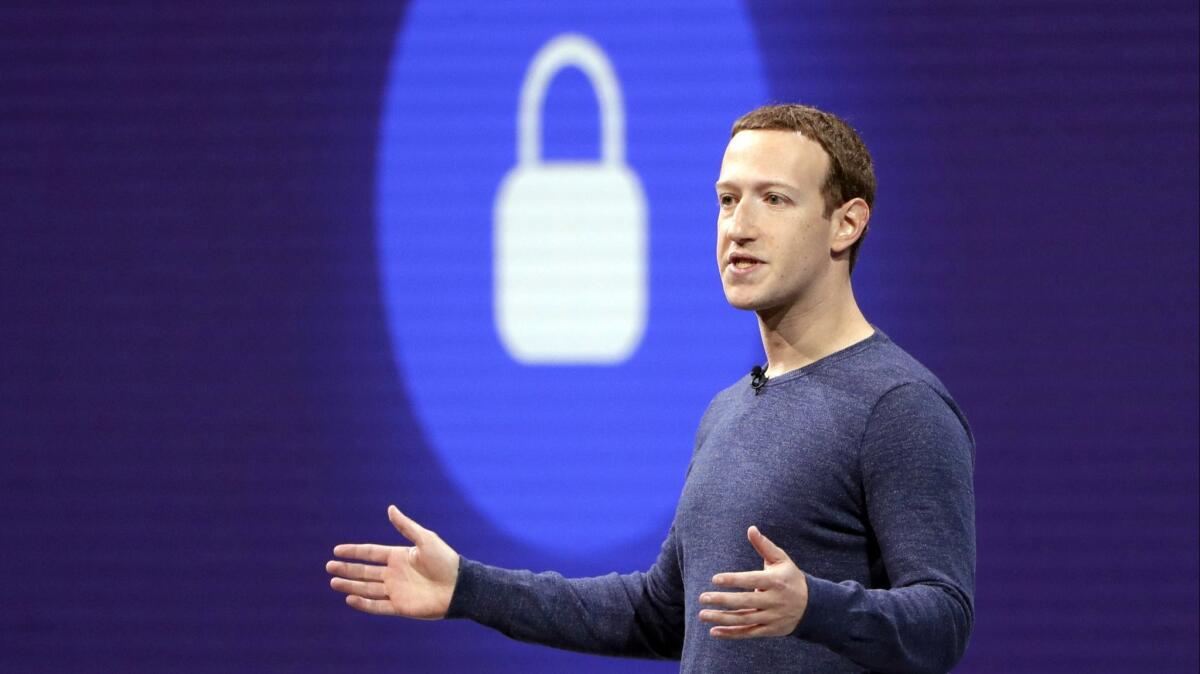The U.S. and Facebook are negotiating a record fine for the company’s privacy lapses

The Federal Trade Commission and Facebook are negotiating a multibillion-dollar fine that would settle the agency’s investigation into the social media giant’s privacy practices, according to two people familiar with the probe.
The fine would be the largest the agency has imposed on a technology company, but the two sides have not yet agreed on an exact amount. Facebook has expressed initial concern with the FTC’s demands, one of the people said. If talks break down, the FTC could take the matter to court in what would probably be a bruising legal fight.
The two people familiar with the probe spoke on the condition of anonymity because they were not authorized to discuss the private talks. Facebook confirmed it is in discussions with the agency but declined to comment further. The FTC declined to comment.
Previously, the largest fine the FTC has imposed on a tech giant for breaking an agreement with the federal government to safeguard consumers’ data was a $22.5-million penalty that Google paid to settle an investigation into its privacy practices in 2012.
The FTC’s probe of Facebook began in March in response to reports about the social giant’s entanglement with Cambridge Analytica, a political consultancy that improperly accessed data on 87 million of the social site’s users. The agency’s inquiry focuses on whether Facebook’s conduct — along with a series of additional privacy mishaps made public in recent months — amounts to a violation of a 2011 agreement Facebook brokered with the FTC to improve its privacy practices. Facebook has maintained it did not breach that accord.
The FTC agreement stipulated that Facebook had to be more transparent and notify users in a clearer way before it shares personal data with third parties. The order also barred Facebook from deceiving users about its privacy practices, and it instituted regular checkups on the way it uses data. Under FTC rules, the agency can seek steep fines determined in part by the number of times a company violates such an order.
Facebook ultimately could broker a deal with the government by agreeing to pay a fine and make some changes to its business practices. That settlement would then have to be approved by a judge.
The FTC’s punishment could include a new, tougher order that could force the tech giant to submit to tougher, regular checkups to ensure it’s complying with the settlement, according to two other people familiar with the probe but not authorized to discuss it on the record.
Alternatively, Facebook could choose to fight the federal agency over its findings and proposed punishments. If that battle lands in federal court, the move could prove bruising to both sides, analysts say, by putting Facebook’s top executives on the witness stand while subjecting the agency’s authority over tech giants to high-profile judicial review.
Adding to the pressure, a collection of consumer advocates urged the FTC last month to penalize Facebook aggressively with “substantial fines,” perhaps exceeding $2 billion, along with an order that limits how and when Facebook collects data about its users.
“The company’s business practices have imposed enormous costs on the privacy and security of Americans, children and communities of color, and the health of democratic institutions in the United States and around the world,” wrote groups led by the nonprofit Electronic Privacy Information Center. EPIC filed the original complaint leading to the FTC’s 2011 settlement.
Lawmakers also have pressed the FTC to speed up its work and penalize Facebook nearly a year after it first announced its investigation.
“When Americans’ privacy is breached, they deserve a speedy and effective response,” wrote Democratic Sens. Edward J. Markey of Massachusetts and Richard Blumenthal of Connecticut in a letter in January.
Romm writes for the Washington Post.
More to Read
Inside the business of entertainment
The Wide Shot brings you news, analysis and insights on everything from streaming wars to production — and what it all means for the future.
You may occasionally receive promotional content from the Los Angeles Times.









